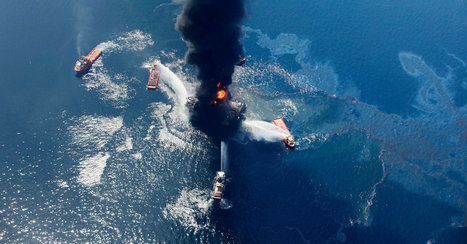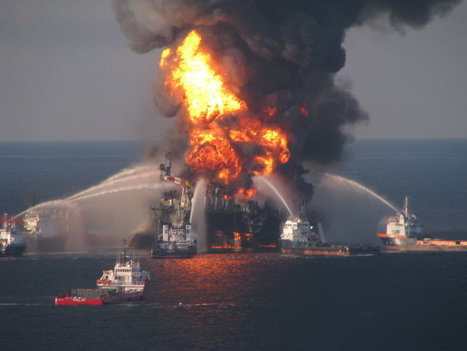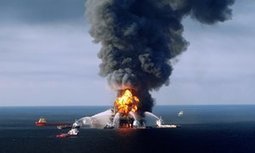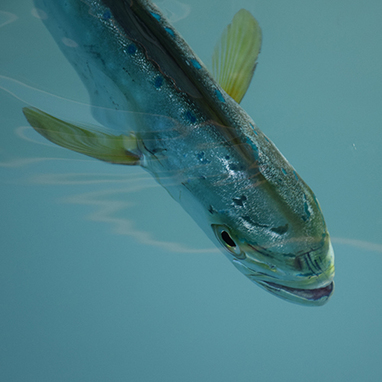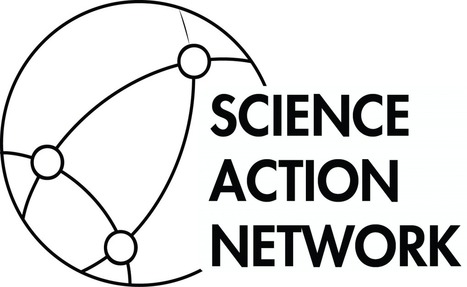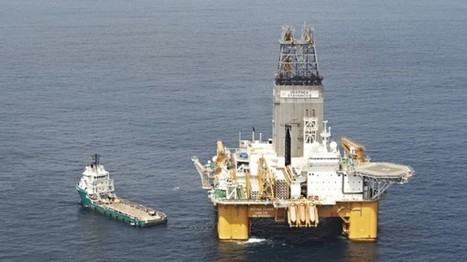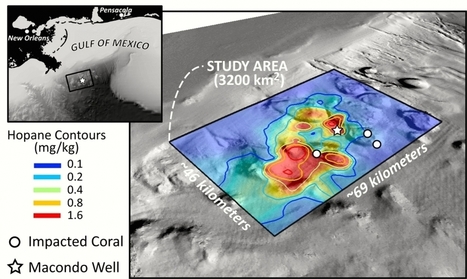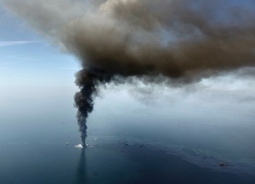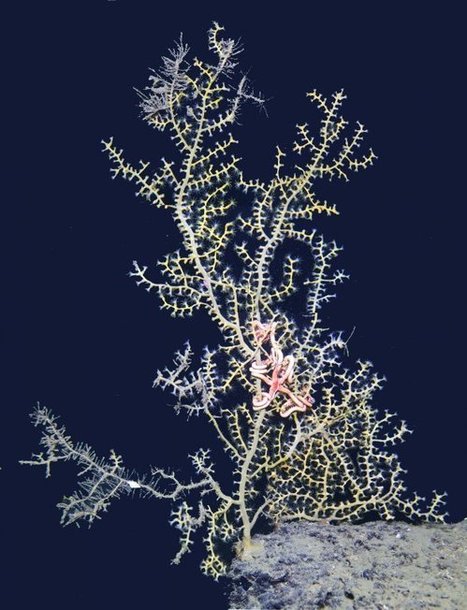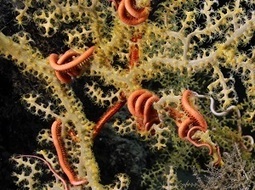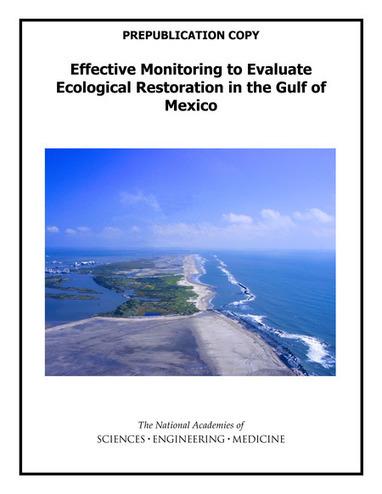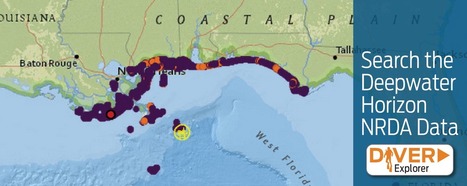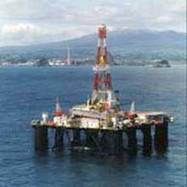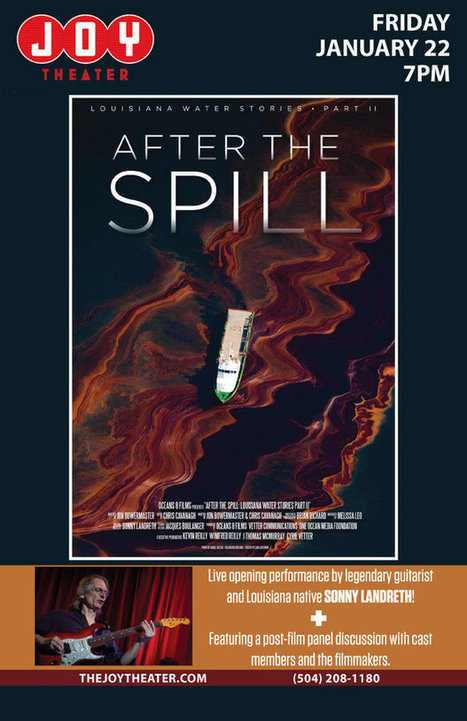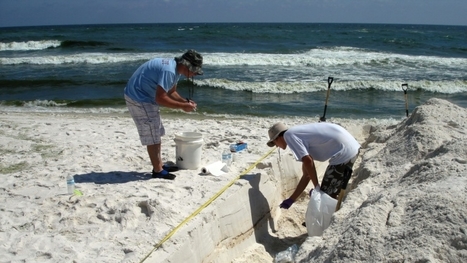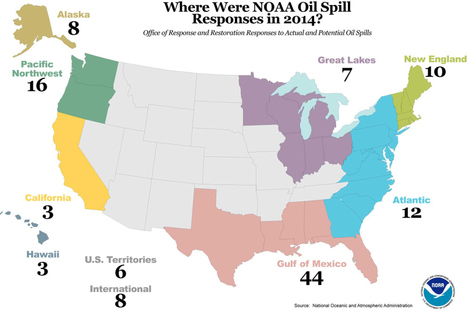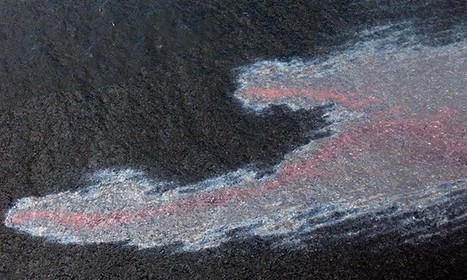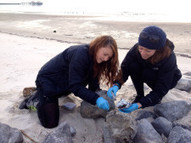 Your new post is loading...
 Your new post is loading...

|
Scooped by
PIRatE Lab
|
Members of the bipartisan commission created to investigate the spill say Congress and the Trump administration have failed to take safety seriously.

|
Scooped by
PIRatE Lab
|
Interior has given no reason for halting the study aimed at improving safety inspections of offshore oil and gas operations.

|
Scooped by
PIRatE Lab
|
Stream GulfCast Ep. 7 - The Whale Who Fell In Love With A Robot by Dispatches from the Gulf from desktop or your mobile device

|
Scooped by
Dulce Lopez
|
The 2010 explosion in the Gulf of Mexico triggered an environmental catastrophe and resulted in unbelievable human heroism – so it was a natural fit for Hollywood. But what do you do when your film leads you into conflict with a corporate oil giant? The film’s director, Peter Berg, explains

|
Suggested by
clare wormald
|

|
Scooped by
PIRatE Lab
|
The SAN would link academics with federal, state and local emergency responders. In each emergency response region non-governmental scientists from academic institutions, professional societies, and scientific NGOs could contribute to pre-incident preparedness efforts and develop new collaborative research initiatives relevant to fill knowledge gap that emerge during drills and scenario-testing.
During a disaster response effort, if necessary, government agencies could access Hub members' scientific expertise in a rapid, streamlined manner because collaborative, high-trust relationships would already be in place.

|
Scooped by
PIRatE Lab
|
Some $25 billion is headed to the five Gulf states that were devastated in the 2010 BP oil disaster. Just a fraction of the government fines and court settlements have been paid — but not all of it will end up repairing the damaged ecosystem. Louisiana, which suffered the most damage in the spill, has used the fines and settlements to rebuild its coast, one that was already fragile and disappearing. When it took a direct hit from the BP disaster, oil choked off vegetation that is critical to holding together what land is left.

|
Scooped by
PIRatE Lab
|
'Deepwater Horizon' Starring Mark Wahlberg casting call for oil riggers in Louisiana The highly anticipated feature film, 'Deepwater Horizon', is now looki

|
Scooped by
PIRatE Lab
|
Oil major supports "non confrontational" call from shareholders to disclose analysis of climate risk. BP will advise shareholders to back a resolution on climate change at April’s annual general meeting.The resolution, similar to one endorsed by Shell last week, will force the company to reveal the risks climate action poses to its business plan. That is likely to heighten scrutiny on high cost projects like its “Sunrise” venture in Canada’s tar sands. Analysts say these could struggle to turn a profit as governments act to curb greenhouse gas emissions from fossil fuels. Explaining the board’s reasons for accepting the resolution, a BP spokesperson said they saw it as “non-confrontational”. “It also gives us the opportunity to demonstrate BP’s current actions in the area and build on its existing disclosures in the area,” he added.
Assessing the environmental damage caused by the 2010 Deepwater Horizon spill has been a challenge
Via clare wormald

|
Scooped by
PIRatE Lab
|
BP has asked a New Orleans court to amend a judge's ruling that the company could be liable for as much as $18 billion in damages levied for its role in the 2010 Gulf of Mexico oil spill, or possibly even grant it a new trial.

|
Scooped by
PIRatE Lab
|
Bacteria in the Gulf of Mexico consumed many of the toxic components of the oil released during the Deepwater Horizon spill in the months after the spill, but not the most toxic contaminants, new research has found.

|
Scooped by
PIRatE Lab
|
Coast Guard officials stressed that a more narrow cleanup response to the 2010 Deepwater Horizon oil spill would continue. The “active cleanup” phase of BP’s Deepwater Horizon oil spill ended this week, days before the four-year anniversary of the 2010 spill. “Let me be absolutely clear: This response is not over—not by a long shot,” said Capt. Thomas Sparks, the Coast Guard federal on-scene coordinator for the Deepwater Horizon response. “Our response posture has evolved to target re-oiling events on coastline segments that were previously cleaned.” BP said its cleanup involved aerial patrols over more than 14,000 miles of shoreline and ground surveys covering more than 4,400 miles
|

|
Scooped by
PIRatE Lab
|
Researchers analyzed high-definition imagery of over three hundred deep-sea coral colonies from 2011 – 2017 to quantify their recovery from the oil spill.

|
Scooped by
PIRatE Lab
|
Pennsylvania State University scientists analyzed images of impacted and non-impacted deep sea corals to characterize their symbiotic relationship with brittle stars and determine if brittle stars influenced coral recovery from the Deepwater Horizon spill.

|
Scooped by
PIRatE Lab
|
This picture was taken June 23, 2010, along the Louisiana shoreline in Barataria Bay during the peak of the Deepwater Horizon oil spill crisis. Photo by Bruce A. Davis, U.S. Department of Homeland Security.A pattern of dramatic, widespread shoreline loss along Louisiana’s coast caused by the 2010 BP Deepwater Horizon oil spill has been revealed by a new study by the U.S.

|
Scooped by
PIRatE Lab
|
Download a PDF of "Effective Monitoring to Evaluate Ecological Restoration in the Gulf of Mexico" by the National Academies of Sciences, Engineering, and Medicine for free. Description: Gulf Coast communities and natural resources suffered extensive direct and indirect damage as a result of the largest accidental oil spill in US history, referred to as the Deepwater Horizon (DWH) oil spill. Notably, natural resources affected by this major spill include wetlands, coastal beaches and barrier islands, coastal and marine wildlife, seagrass beds, oyster reefs, commercial fisheries, deep benthos, and coral reefs, among other habitats and species. Losses include an estimated 20% reduction in commercial fishery landings across the Gulf of Mexico and damage to as much as 1,100 linear miles of coastal salt marsh wetlands.
This historic spill is being followed by a restoration effort unparalleled in complexity and magnitude in U.S. history. Legal settlements in the wake of DWH led to the establishment of a set of programs tasked with administering and supporting DWH-related restoration in the Gulf of Mexico. In order to ensure that restoration goals are met and money is well spent, restoration monitoring and evaluation should be an integral part of those programs. However, evaluations of past restoration efforts have shown that monitoring is often inadequate or even absent.
Effective Monitoring to Evaluate Ecological Restoration in the Gulf of Mexico identifies best practices for monitoring and evaluating restoration activities to improve the performance of restoration programs and increase the effectiveness and longevity of restoration projects. This report provides general guidance for restoration monitoring, assessment, and synthesis that can be applied to most ecological restoration supported by these major programs given their similarities in restoration goals. It also offers specific guidance for a subset of habitats and taxa to be restored in the Gulf including oyster reefs, tidal wetlands, and seagrass habitats, as well as a variety of birds, sea turtles, and marine mammals.

|
Scooped by
PIRatE Lab
|
The National Oceanic and Atmospheric Administration and the U.S. Fish and Wildlife Service are making environmental samples collected in the wake of the Deepwater Horizon explosion available to the scientific community. Samples of water, oil, sediment, and organisms are available. More information about available samples and results of prior analyses are available at https://dwhdiver.orr.noaa.gov/web/guest/home. To make inquiries or request specific samples, email dwhsamples@noaa.gov by 10 June 2016.

|
Scooped by
PIRatE Lab
|
Transocean Ltd. (NYSE: RIG) announced today an agreement with Sembcorp Marine's subsidiary, Jurong Shipyard Ptd Ltd, to defer…

|
Scooped by
PIRatE Lab
|
Recovery in the wake of the Deepwater Horizon has been something of a slow recovery when it comes to the most impacted communities (mid- and deepwater). More readily-viewable areas have seen mixed…
Researchers have studied the impact of the Deepwater Horizon oil spill on communities of beach microbes.
Via Anita Woodruff
Where and when was the biggest oil spill? How many oil spills happen each year? Is the frequency of oil spills going up or down? Where can I get information about oil spills? We at NOAA’s Office of...
Via AimForGood

|
Scooped by
PIRatE Lab
|
Politico readers have to go through ten paragraphs of someone telling them BP's historic oil spill was environmentally negligible before they know that the writer is one of BP's top executives.

|
Scooped by
PIRatE Lab
|
A research team has estimated the total mass of oil that reached the Gulf of Mexico shore in the wake of the BP Deepwater Horizon blowout. It's the first time such an estimate was reported.

|
Scooped by
PIRatE Lab
|
rScientists from Haverford College and Woods Hole Oceanographic Institution investigated the presence of dispersants following the Deepwater Horizon oil spill.
|
 Your new post is loading...
Your new post is loading...
 Your new post is loading...
Your new post is loading...





